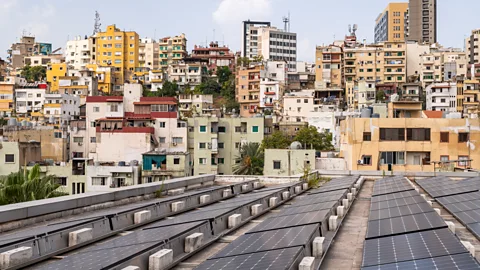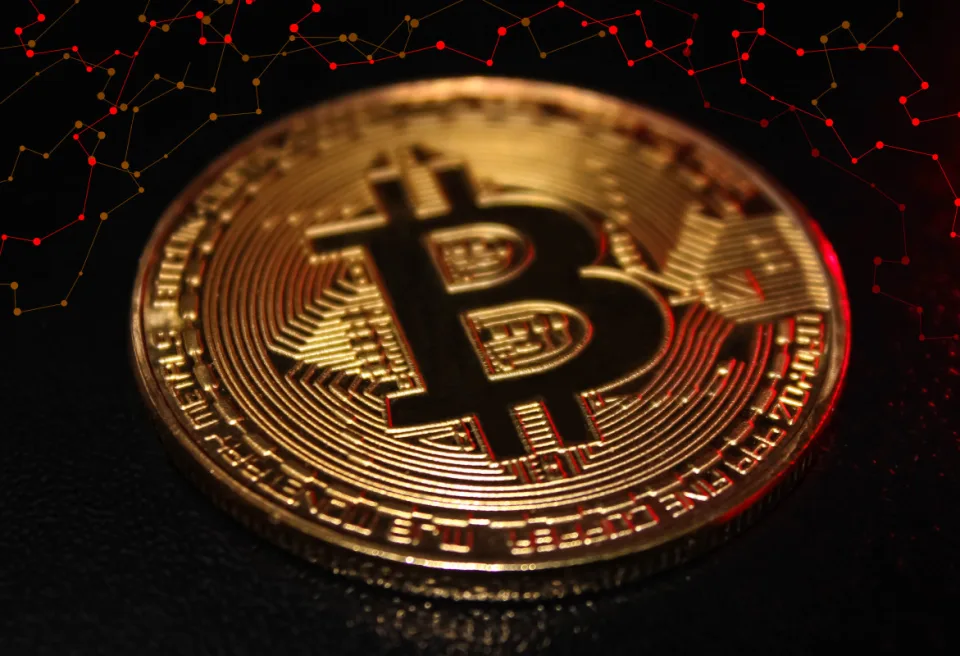Rooftop solar panels are offering the promise of a more normal way of living in Lebanon amidst an unsteady electricity supply – for those who can afford it.
Sonia Constantin’s fridge and water boiler are plugged in. Sitting on her sofa with her sister, she appreciates the rediscovered comfort of her home in Beirut, Lebanon’s capital – now fully supplied with electricity.
A Lebanese professor of educational sciences, Constantin decided to invest $6,500 (£5,140) of her savings in nine solar panels and a battery last September. “We are not looking for a life of luxury, we simply want dignity,” she tells me.
The investment allowed her to unsubscribe from the privately owned diesel-powered generators which supply power to most households in Beirut. “I have since resumed a normal life: I can charge my phone whenever I want.”
Lebanon’s national grid has struggled to meet the population’s full electricity requirements since the country’s civil war began in 1975, forcing consumers to rely on expensive neighbourhood generators to fill the gaps. The civil war ended in 1990 but the grid problems continued. The state provider, Electricity of Lebanon (EDL), ceased supplying power altogether in 2021, when it ran out of fuel, plunging the country into near total blackouts. In Beirut, the blackouts continued for over a year and a half, with EDL only able to provide electricity for an average of 3-4 hours per day.
This was only one symptom of multiple new crises in the country, which started in 2019 with an economic and currency crisis deemed by the World Bank as “one of the top ten, possibly top three, most severe economic collapses worldwide since the 1850s“. Inflation in Lebanon reached 171% in 2022.
Amidst the crisis, for many families rooftop solar panels have become a stand-in for both grid-supplied electricity and private diesel generators. While it remains an imperfect solution, Lebanon’s situation has shown the power of solar and how it can provide a source of clean and reliable electricity when other electricity systems break down.
Solar energy has expanded exponentially across the world over the past 15 years, with capacity increasing more than 50-fold between 2008 and 2021. At the same time, the price of solar energy has dropped significantly. Some 25 million households globally have solar panels on their roofs today, and this is expected to rise to 100 million by 2030.
As well as lowering greenhouse gas emissions by avoiding fossil fuel use, solar power is often touted for its positive impacts on air pollution and health and its flexibility in providing energy access to areas of the world not yet connected to a national grid.
In Lebanon, however, individual decisions to turn to solar are now more a response to the economic crisis than a reaction to climate change and air pollution.
“Before 2021, households were installing solar panels out of ecological concern,” says Pierre El-Khoury, general director of the Lebanese Centre for Energy Conservation (LCEC), the country’s national energy agency. “In 2021, it became a means to secure energy supplies: EDL’s production, which used to reach 1,800 MW, fell below 150 MW.” Then, in 2022, the choice began to be driven mostly by economic concerns, he says, as the relative price of electricity coming from generators increased tenfold in Lebanese lira.
Since 2021, generators, typically owned by private providers, have operated as a nearly full-time substitute for electricity from the national grid, resulting in staggering electricity bills. Constantin says she had to pay up to $100 (£79) per month – a third of her salary in 2022, since the national currency, the Lebanese lira, has lost 98% of its value against the dollar since 2019. Constantin’s $100 bill only guaranteed her five amps (A), sufficient to run no more than a few light bulbs and a fridge at once.
According to Human Rights Watch, Lebanese households spent, on average, 44% of their monthly income on generator bills between November 2021 and January 2022. Solar panels, meanwhile, cost at least several thousand dollars, depending on the exact number and quality of the panels and batteries, but ensure protection against blackouts and inflation of electricity bills.
Generators also have other problems. For one thing, they use diesel, causing significant air pollution. They also operate illegally, says Christina Abi Haidar, a legal advisor on energy for UN agencies and the private sector. EDL officially has a monopoly in Lebanon, she adds, but a “de facto monopoly of [private] generators are allowed to exist because those who run them are affiliated to the political elite”.
All this has driven a huge shift to rooftop solar in Lebanon. Between 2020 and 2022, the installed capacity of solar energy across the country multiplied more than eight-fold, largely from rooftop solar. Over 650 megawatts (MW) were installed in 2022 alone, says El-Khoury, bringing Lebanon’s total solar capacity to 870MW, according to his figures. “Installed capacity should reach 1,000MW in June [2023],” he says. He estimates that the installed capacity of diesel generators, meanwhile, likely amounts to 1,000-1,500MW.











No comments yet. Be the first to comment!